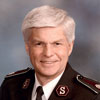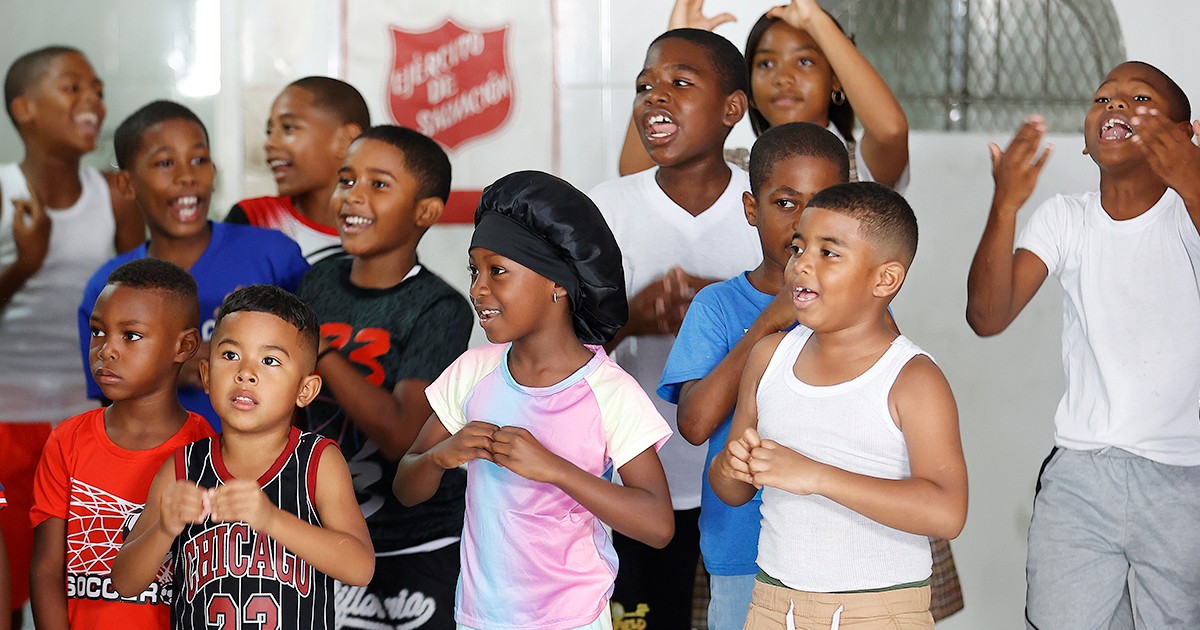 As a challenging new year lies ahead, the word that keeps coming to my mind is “wholeness.” How do I as a person—how do we as The Salvation Army—incorporate the concept of wholeness or completeness into a corporate rhythm of every-day life in a broken world filled with uncertainties?
As a challenging new year lies ahead, the word that keeps coming to my mind is “wholeness.” How do I as a person—how do we as The Salvation Army—incorporate the concept of wholeness or completeness into a corporate rhythm of every-day life in a broken world filled with uncertainties?
We live in a fractured world that faces unprecedented problems not witnessed in our lifetime. Our culture is trapped in a frantic whirlwind of noise, fragmentation and disorganization. Deep within us, we experience an innate longing for wholeness—a yearning for the spiritual repair of all that has been broken and torn apart—an awareness that our body, mind and spirit are interconnected and part of an integrated completeness. Our longing is to love God with our whole self and, in turn, to love one another in unity of spirit. We yearn to exemplify God's dual command to “love the Lord your God with all your heart and with all your soul and with all your strength and with all your mind” and to “love your neighbour as yourself” (Luke 10:27).
We live in a world that God created for us. It is Life Together, as renowned theologian Dietrich Bonhoeffer titled his celebrated work. Our personal and corporate responsibility is to instinctively think of others. Dr. Howard Snyder, chair of Wesley studies at Toronto's Tyndale Seminary, enlarges the definition of wholeness by observing that it involves the integration of ecology, justice and evangelism into the daily rhythm of our lives. It is embracing the whole global community, the “healing for all people and the whole of creation.”
The Rhythm of Community
Wholeness must permeate a corporate rhythm of community. People within our corps long to experience a sense of wholeness. Our congregations must be safe places—in every sense of that word—where people can experience God in community. Dr. Larry Crabb, a leading psychologist, author, Bible teacher and seminar speaker, highlights the need for God's people to have deep and intimate relationships with one another in what he terms “safe connections within the body of Christ.” The Church needs people who are open, vulnerable, supportive and empathetic with one another. “The Church,” notes Crabb, “should be the safest place on earth.” To fulfil its God-given mission, a church must exist as a community of believers who strive for wholeness and goodness simply because Christ is at the very centre of their lives.
The Rhythm of Peace
God wants our corps to be sanctuaries in the fullest sense of the term. By definition, sanctuary not only defines a holy place, but a place of refuge where one finds protection and a true sense of peace. Yes, we want excitement! Yes, we need joy! But most of all we require a safe place of refuge—a place of wholeness, acceptance and peace. This all begins with individuals within the body. As St. Francis of Assisi wrote centuries ago:
Lord, make me an instrument of thy peace
For it is in giving that we receive,
It is in pardoning that we are pardoned,
And it is in dying that we are born to eternal life.
Wholeness requires an integrated, radiant life of love. For it is Christ, revealed in each one of us, who conveys his fullness, grace, glory and peace.
The Rhythm of Rest
Rabbis teach that on the seventh day God created menuha—tranquility, serenity, peace, repose, rest. With menuha, the circle of creation was completed. Menuha is the sense of wholeness within each one of us that counters the fragmented, broken world around us. We genuinely seek wholeness when we are open to all God has for us. As Mother Teresa wisely noted, we must “remain as empty as possible so that God can fill us up.” Rather than being caught up by the storms of life that can easily penetrate and devastate our inner being, we must reconnect with one another and then trust God. This is our essential rest.
There is an inner calling to wholeness within each one of us. What better time than the beginning of a new year to come together as a united people—a united Army—desiring to be fully whole, and one with Christ and each other?
What a beautiful rhythm of life!
 Commissioner William W. Francis is the Territorial Commander of The Salvation Army Canada and Bermuda Territory. His wife, Commissioner Marilyn Francis, is the Territorial President for Women's Ministries. Commissioners Francis have two adult children, Captain William Marshall and Susan Marjorie, plus six grandchildren.
Commissioner William W. Francis is the Territorial Commander of The Salvation Army Canada and Bermuda Territory. His wife, Commissioner Marilyn Francis, is the Territorial President for Women's Ministries. Commissioners Francis have two adult children, Captain William Marshall and Susan Marjorie, plus six grandchildren.









Comment
On Sunday, February 1, 2009, Fred Masters said:
Leave a Comment